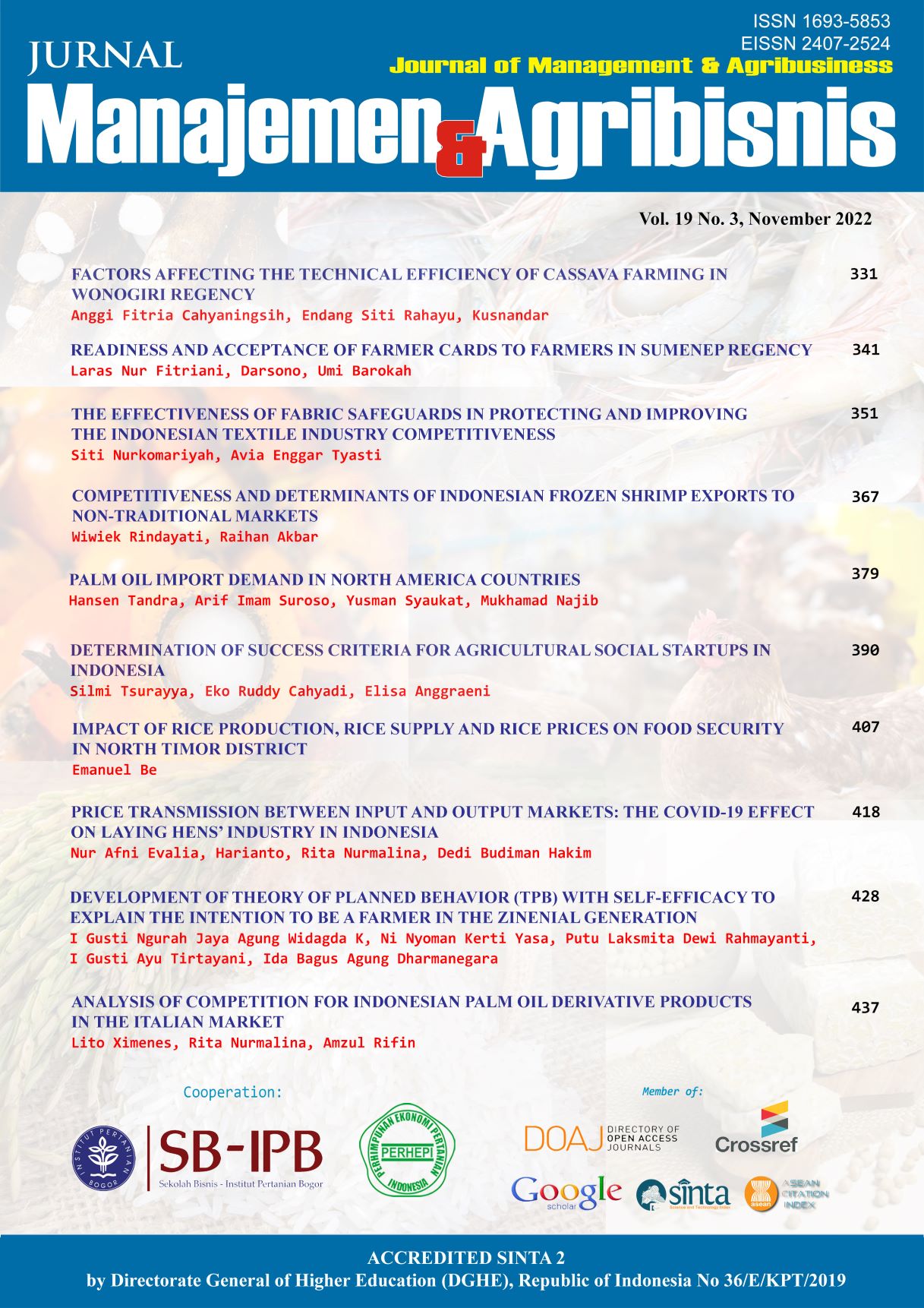Strategies and Policies To Increase Competitiveness of Cassava in Lampung Province, Indonesia
Abstract
Cassava is an important commodity and has a strategic role for the Indonesian economy, especially for Lampung Province as the main producer. However, prices and provitas that tend to be low, policies are not in favor of farmers, and weak institutions, so the commodity's is low competitiveness. Government intervention in encouraging the competitiveness of a commodity by providing protection to producing farmers is felt to be very effective, especially for cassava commodities. Therefore, this study aims to analyze appropriate strategies and policies in increasing the competitiveness of cassava commodities in Lampung Province. Therefore, strategies and policies are needed to increase the competitiveness of cassava commodities in Lampung Province. The research was conducted in 2020 in Central Lampung and East Lampung Regencies with a total of 120 farmers as respondents. This research uses policy matrix analysis or PAM analysis and qualitative descriptive. The results showed that cassava has comparative and competitive advantages even though it is low. Therefore, the best policy is needed to increase the competitiveness of cassava commodities. The policy in order to increase the competitiveness of cassava in Lampung Province can be done by increasing output by 20% even though the cost of fertilizer increases by 20%. Some of these policies and strategies can have an impact on production cost efficiency, improve the quality of cassava, increase the quantity of cassava, and increase the income of cassava farmers.
Keywords: cassava, competitiveness, improvement policy, PAM, strategy
Authors
Authors who publish with this journal agree to the following terms:
- Authors retain copyright and grant the journal right of first publication with the work simultaneously licensed under a Creative Commons Attribution License that allows others to share the work with an acknowledgement of the work's authorship and initial publication in this journal.
- Authors are able to enter into separate, additional contractual arrangements for the non-exclusive distribution of the journal's published version of the work (e.g., post it to an institutional repository or publish it in a book), with an acknowledgement of its initial publication in this journal.
- Authors are permitted and encouraged to post their work online (e.g., in institutional repositories or on their website) prior to and during the submission process, as it can lead to productive exchanges, as well as earlier and greater citation of published work (See The Effect of Open Access).

